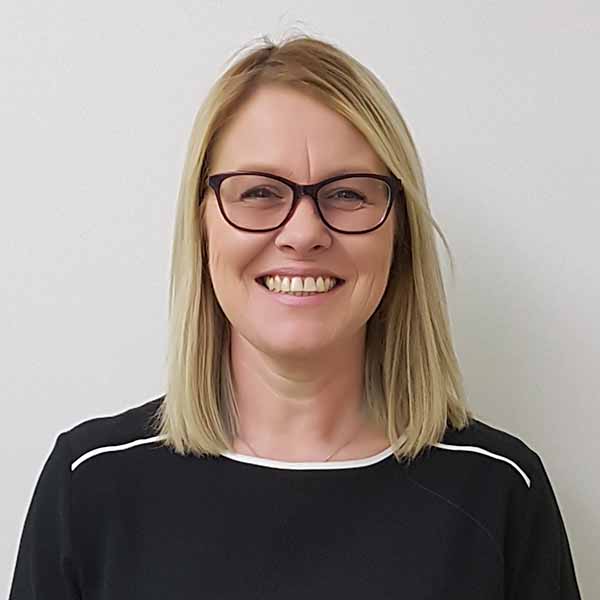MSc Autism
ApplyKey facts
- Start date: September
- Application deadline: August
- Study mode and duration: 12 months full-time
Study with us
- understand complex cognitive and affective theories essential to supporting the autism profile
- translate theory into practice with a work placement
- receive input from internationally-respected autism experts
- suitable for anyone looking to pursue full-time study in this area
- open to international students
Why this course?
The MSc Autism provides a critical understanding of the conceptual frameworks relevant to understanding Autism Spectrum Disorder (ASD). This Masters-level course enables you to understand complex cognitive and affective theories essential to supporting the autism profile.
This knowledge will enable you to translate theory into practice and to critically evaluate evidence-based approaches to intervention. Our philosophy that autistic people require a holistic approach throughout their life journey means you can draw upon experiences of our multi-professional student cohort. Our students include leading professionals, autistic students and those with dual professional-parental experiences. Your learning will be inspired from input provided by internationally respected autism experts.


Interested in postgraduate study?
At the Faculty of Humanities and Social Sciences, our friendly and knowledgeable team will be available to provide you with all the information you need to kick-start your postgraduate journey at the University of Strathclyde. Register for upcoming events below:
What you’ll study
You'll take five compulsory classes and one optional classes and then complete dissertation. You'll be allocated a dissertation supervisor who will support your studies.
You can complete your final dissertation by distance learning. This allows international students to complete their studies in their home country, potentially reducing the financial cost and time away from your family.
Research project
You’ll carry out a research dissertation in a subject area of your choice. We'll allocate a supervisor for one-to-one support whilst you carry out and report your dissertation. We endeavour to match you with the best fit for your area of specialism.
Placement
Our students benefit from a supportive educational practice placement based within our partner schools across North Lanarkshire. Those potential students wishing to apply who don't possess the required autism practice experience can do so but must attend a compulsory placement and complete an additional reflective practice journal.
Please read our important information about the Protecting Vulnerable Groups (PVG) Scheme. This is for all applicants applying for courses which involve placement opportunities (working with children or vulnerable adults).
Programme leader
Gillian McConnell has over 25 years’ experience working with Autistic people in a variety of settings, such as social care, criminal justice and education.

Learning & teaching
The course is taught through a range of student and staff-led research seminars that you’ll participate in.
Assessment
The course is assessed through written coursework that draws on academic study and reflection on practical experiences in education.
Guest lecturers
We work with leading autism professionals to provide expert input throughout the classes.
Visiting lecturers include Dr Tommy MacKay who is a practising Educational Psychologist.
Course content
Please note that the below is an indicative list of classes. These are subject to change.
Conceptual Frameworks in Autism
This class will introduce key conceptual frameworks in relation to understanding the impact of the spectrum of autism. Focus will be given to the uniquely differing social, emotional, sensory and cognitive profiles for autistic people. Understanding these conceptual frameworks will enable participants to reflect on how and why these influence and inform practice.
The Spectrum of Autism
You'll consider the issues that impact on practice when supporting autistic individuals with and without an additional intellectual or learning disability.
Responding to the Impact of Autism: Approaches and Interventions
Experiential Placement
All full time MSc students will attend one of the placements available within the Course.
Research Methods & Reasoning
This class provides support in developing a critical and informed understanding of research methods in relation to your own planned dissertation project. It also provides support in understanding research ethics and how they relate to your own research. It provides support in meeting the requirements of the ethical approval process.
Dissertation
This class represents the application of the skills and knowledge you've gained throughout your study. You'll carry out and report on a research project in an area relevant to your MSc study up to this point. This class will provide support for the planning, implementation and writing up of a research project in a professionally and academically relevant area.
You'll choose one full-time elective, and two part-time electives.
Full-time and part-time electives
Autism & Related Conditions
The aim of this module is to consider the implications of co-occurring conditions and how this can impact practice when supporting autistic individuals with related conditions (co-occurring/comorbid conditions), and the impact this has on their own practice/experiential context. The module will explore such terms as ‘learning difficulty’, ‘social disability’, “co-occurring conditions” and ‘co-morbidity’ and the impact this has for the individual, their carers and practitioners. The prevalence rates of the differing subgroups and how this presents for the individual will be explored. The need for a multi-professional team to provide the necessary support will be considered and how service provision responds to meet the diverse needs across the spectrum will be explored. The theoretical and practical issues associated with working with people within these differing subgroups will be considered, as will the legislative context.
Autism & Schooling
This module is concerned with both theoretical and practical issues of understanding and responding to the educational and social needs of autistic pupils of all ages. This module will draw on the Autism Toolbox as a resource throughout and issues will be discussed against the legislative backdrop of the presumption of mainstreaming and the broader issue of social inclusion.
Multi-professional Work & Family Support
This module will examine both theoretical and practical issues associated with multi professional and inter-disciplinary groups of personnel, multidisciplinary approaches to autism and to family support, and the place of the family with autistic family member(s) in a multi-disciplinary approach. In order to work effectively with autistic people, professionals, parents and carers have to be able to understand each other’s point of view of people, including the point of view of the autistic person. It is important for these groups to recognise both their unique nature and unique contribution to the support, education, health and care needs of an autistic person, as well as to recognise common ground and the need for consistency and cooperation across services. Since considerable progress can be made with appropriate education, care, and support through widening the multi professional view and understanding of the importance of collaborative practice and legislative requirements in this regard, this option module has a central place for participating professionals. Particular focus will be given to the complex issues that arise from the developmental impact on personal transitions for autistic people. Multi-disciplinary planning around transitional work will be considered to ensure that planning meets current policy and legislation.
Part-time only electives
Independent Study Module

The best part is that we get to learn about the emotional wellbeing of the autistic individuals, and how we as a society can lessen the mental health challenges they face primarily by accepting them and making sure they feel belonged.
Entry requirements
| Academic requirements / experience | Undergraduate Honours degree in a related discipline, or equivalent qualification. Direct lived experience of living or experience of working with autistic people. Any experience should be detailed on the personal statement section of the application form. Applicants with other forms of experience who would like to discuss their eligibility should contact us via the enquiry form below. |
|---|---|
| English language requirements | Please check the University's English requirements before making your application. |
International students
We've a thriving international community with students coming here to study from over 140 countries across the world. Find out all you need to know about studying in Glasgow at Strathclyde and hear from students about their experiences.

Chat to a student ambassador
If you want to know more about what it’s like to be a Humanities & Social Sciences student at the University of Strathclyde, a selection of our current students are here to help!
Our Unibuddy ambassadors can answer all the questions you might have about courses and studying at Strathclyde, along with offering insight into their experiences of life in Glasgow and Scotland.
Fees & funding
All fees quoted are for full-time courses and per academic year unless stated otherwise.
Fees may be subject to updates to maintain accuracy. Tuition fees will be notified in your offer letter.
All fees are in £ sterling, unless otherwise stated, and may be subject to revision.
Annual revision of fees
Students on programmes of study of more than one year (or studying standalone modules) should be aware that the majority of fees will increase annually. The University will take a range of factors into account, including, but not limited to, UK inflation, changes in delivery costs and changes in Scottish and/or UK Government funding. Changes in fees will be published on the University website in October each year for the following year of study and any annual increase will be capped at a maximum of 10% per year.
| Scotland | £9,550 |
|---|---|
| England, Wales & Northern Ireland | £9,550 |
| Republic of Ireland |
If you are an Irish citizen and have been ordinary resident in the Republic of Ireland for the three years prior to the relevant date, and will be coming to Scotland for Educational purposes only, you will meet the criteria of England, Wales & Northern Ireland fee status. For more information and advice on tuition fee status, you can visit the UKCISA - International student advice and guidance - Scotland: fee status webpage. Find out more about the University of Strathclyde's fee assessments process. |
| International | £21,550 |
| Additional costs | PVG scheme (Protection of Vulnerable Groups)£59 membership fee. International studentsInternational students may have associated visa and immigration costs. Please see student visa guidance for more information. |
| Available scholarships | Tuition fee reduction of 25% for NHS employeesThe Faculty of Humanities & Social Sciences is offering a fee reduction of up to 25% to employees of NHS partner agencies. Find out more about the 25% tuition fee reduction for NHS employees. Take a look at our scholarships search for funding opportunities. |
Please note: the fees shown are annual and may be subject to an increase each year. Find out more about fees.
How can I fund my course?
Scottish postgraduate students
Scottish postgraduate students may be able to apply for support from the Student Awards Agency Scotland (SAAS). The support is in the form of a tuition fee loan and for eligible students, a living cost loan. Find out more about the support and how to apply.
Don’t forget to check our scholarship search for more help with fees and funding.
Students coming from England
Students ordinarily resident in England may be to apply for postgraduate support from Student Finance England. The support is a loan of up to £10,280 which can be used for both tuition fees and living costs. Find out more about the support and how to apply.
Don’t forget to check our scholarship search for more help with fees and funding.
Students coming from Wales
Students ordinarily resident in Wales may be to apply for postgraduate support from Student Finance Wales. The support is a loan of up to £10,280 which can be used for both tuition fees and living costs. Find out more about the support and how to apply.
Don’t forget to check our scholarship search for more help with fees and funding.
Students coming from Northern Ireland
Postgraduate students who are ordinarily resident in Northern Ireland may be able to apply for support from Student Finance Northern Ireland. The support is a tuition fee loan of up to £5,500. Find out more about the support and how to apply.
Don’t forget to check our scholarship search for more help with fees and funding.
International students
We've a large range of scholarships available to help you fund your studies. Check our scholarship search for more help with fees and funding.
Faculty of Humanities & Social Sciences Scholarships
EU Engagement Scholarships are available to EU applicants who would have previously been eligible for Home (Scottish/EU) fee status.
Careers
- Specialist speech and language therapists
- Occupational therapists
- Family support workers
- Teachers in additional support for learning schools
Glasgow is Scotland's biggest & most cosmopolitan city
Our campus is based right in the very heart of Glasgow. We're in the city centre, next to the Merchant City, both of which are great locations for sightseeing, shopping and socialising alongside your studies.
Apply
Start date: Sep 2025
Autism
Contact us
Prospective student enquiries
Contact a member of our team on LiveChat between 10am and 4pm (GMT)
Telephone: +44 (0) 141 444 8600
Looking to study part-time?
Our MEd Autism is suitable for those looking to pursue part-time study in this area. It's ideal if you're seeking a qualification while working that will enhance your professional practice.

